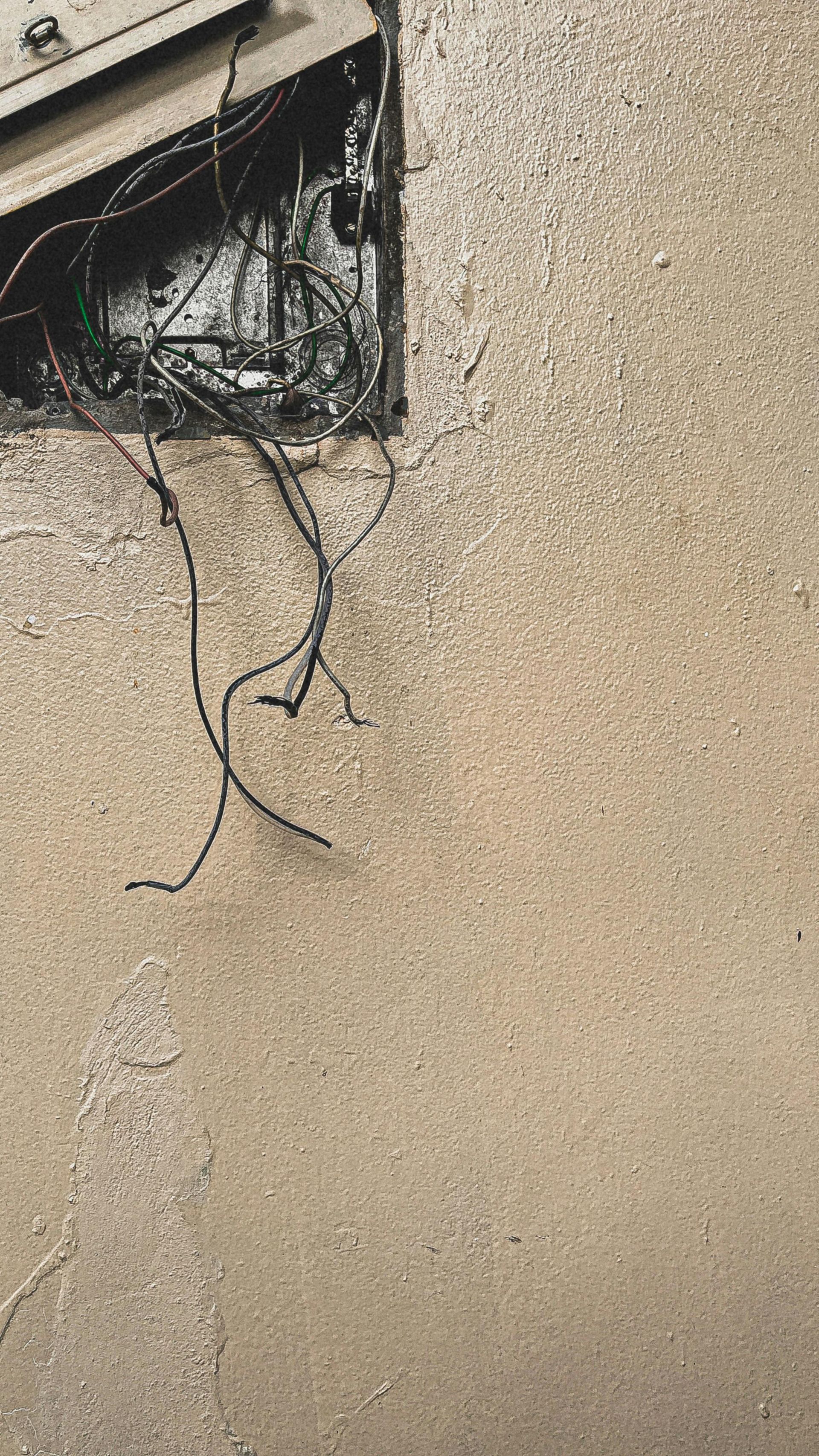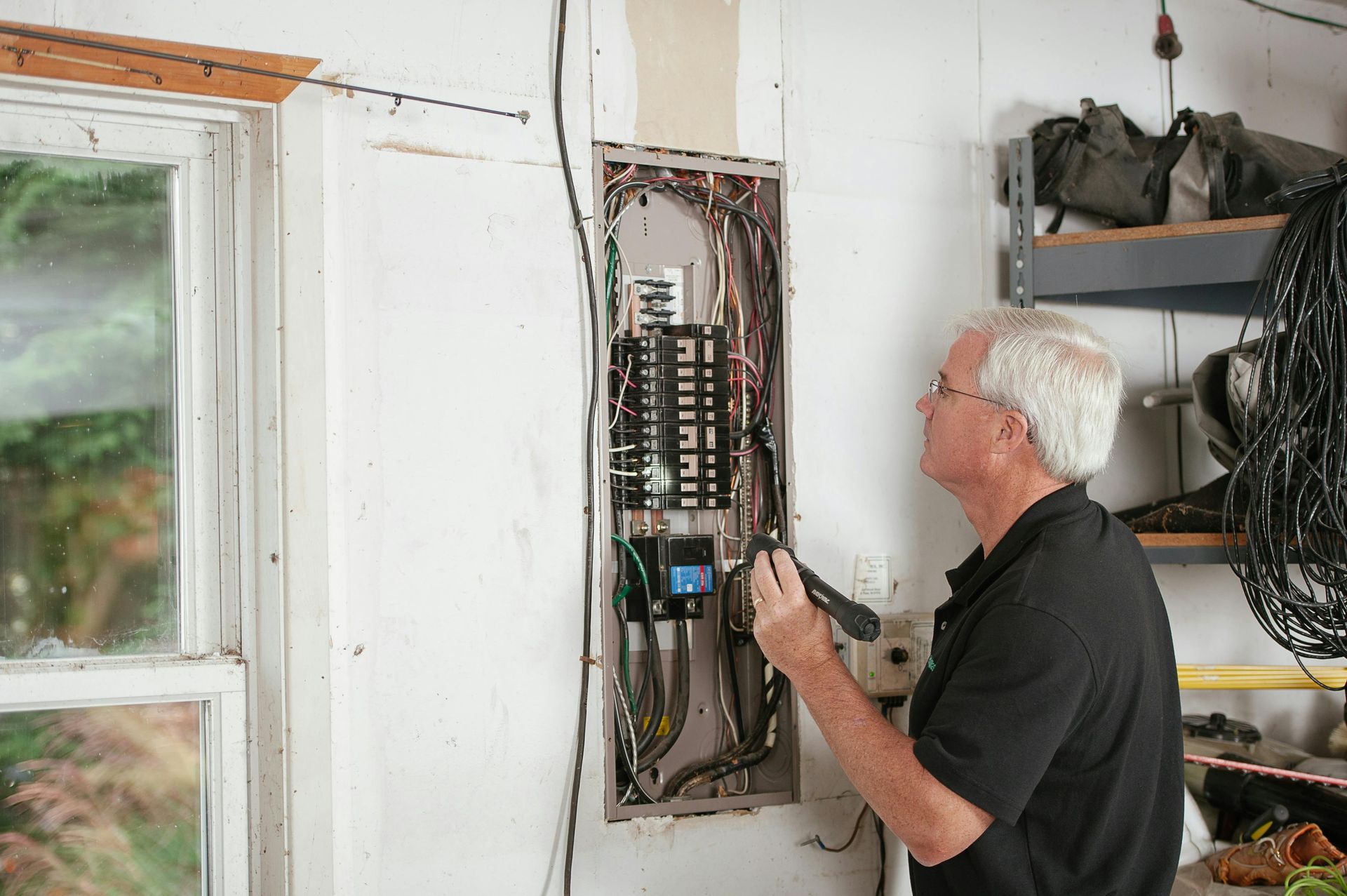Emergency Electrician vs. Regular Electrician: Which Do You Need?
When electrical problems strike your home or business, determining whether you need an emergency electrician or can wait for a regular electrician appointment can be confusing. Understanding the differences between these services can save you money, prevent safety hazards, and ensure your electrical issues are resolved appropriately.
Emergency electricians provide immediate response for urgent electrical situations that pose safety risks or cause significant disruption. Regular electricians handle routine installations, maintenance, and non-urgent repairs during standard business hours. This guide will help you identify when to call a 24-hour electrician versus scheduling a standard appointment.
Key Takeaways
- Emergency electricians respond immediately to urgent electrical problems that pose safety risks, while regular electricians handle routine work during business hours
- Emergency electrical services typically cost 1.5 to 3 times more than regular electrician rates due to after-hours availability and immediate response
- Situations requiring emergency electricians include power outages, electrical fires, exposed wires, sparking outlets, and complete electrical system failures
- Regular electricians are suitable for planned installations, routine maintenance, minor repairs, and electrical projects that don't pose immediate safety concerns
- Most electrical issues can wait for regular service appointments, helping homeowners avoid unnecessary emergency service charges
- Finding a reliable emergency electrician near you requires researching licensed professionals who offer 24/7 availability and rapid response times
What is an Emergency Electrician?
An emergency electrician is a licensed electrical professional who provides immediate response services for urgent electrical problems that cannot wait for regular business hours. These specialists maintain 24/7 availability and can typically arrive within one to two hours, focusing on restoring electrical safety and basic functionality rather than comprehensive projects.
Emergency Electrician Services
Emergency electrical services encompass a wide range of urgent situations that require immediate professional attention:
- Power outage diagnosis and restoration when the issue originates within your electrical system
- Electrical fire suppression and post-fire electrical system assessment
- Exposed wire containment and immediate safety measures
- Circuit breaker panel failures and electrical system overloads
- Sparking outlets, switches, or electrical fixtures
- Electrical shock incidents and safety hazard elimination
- Storm damage electrical repairs and emergency weatherproofing
- Emergency generator installation and connection during extended outages
What is a Regular Electrician?
A regular electrician provides scheduled electrical services during standard business hours, typically Monday through Friday from 8 AM to 5 PM. These professionals handle planned electrical work, routine maintenance, and non-urgent repairs while focusing on long-term electrical system improvement, energy efficiency, and comprehensive projects.
Regular Electrician Services
Standard electrical services encompass a broad range of planned electrical work:
- Electrical panel upgrades and service capacity increases
- New outlet and switch installations throughout homes and businesses
- Lighting fixture installation and electrical lighting design
- Ceiling fan installation and electrical appliance connections
- Electrical wiring for home additions and remodeling projects
- GFCI outlet installation in bathrooms, kitchens, and outdoor areas
- Electrical safety inspections and code compliance updates
- Energy efficiency upgrades and smart home electrical installations
Cost Comparison: Emergency vs Regular Electrician
Understanding the cost differences between emergency and regular
electrical services helps you make informed decisions about when to call each type of electrician. Emergency electrical services command premium pricing due to their immediate availability and after-hours response requirements.
| Service Type | Emergency Electrician | Regular Electrician |
|---|---|---|
| Service Call Fee | Significantly Higher | Standard Rates |
| Hourly Rate | Premium Pricing | Standard Rates |
| Availability | 24/7 including holidays | Business hours only |
Emergency electrician costs reflect the premium for immediate availability and rapid response. These higher rates compensate electricians for maintaining 24-hour availability, specialized emergency equipment, and the ability to respond within hours rather than days or weeks.
Regular electrician services offer more predictable pricing and often include detailed estimates for larger projects. Many regular electricians provide free estimates for substantial electrical work and can schedule projects according to your timeline and budget preferences.
Factors Affecting Emergency Electrician Costs
Several factors influence emergency electrician pricing beyond standard hourly rates. Understanding these cost drivers helps you prepare for emergency electrical expenses and make informed decisions during urgent situations.
- Time of service call affects pricing, with weekend and holiday rates typically higher than weeknight emergency calls
- Complexity of the electrical problem determines labor time, with simple fixes costing less than major electrical system repairs
- Geographic location impacts pricing, with urban areas typically charging more than rural locations due to higher operating costs
- Material costs for emergency repairs may include premium pricing when specialized parts require immediate sourcing
- Travel distance to your location can add service charges, particularly for remote properties or areas with limited electrical contractors
Emergency electricians often require minimum service charges regardless of repair duration. These minimums typically cover the first hour of work and compensate for immediate response capabilities. Understanding these pricing structures helps you budget appropriately for emergency electrical services.
When to Call an Emergency Electrician
Recognizing genuine electrical emergencies ensures you receive appropriate help while avoiding unnecessary emergency service costs. True electrical emergencies involve immediate safety risks or situations that could worsen rapidly without professional intervention.
Immediate Electrical Emergencies
- Electrical fires or smoke coming from outlets, switches, or electrical panels
- Exposed electrical wires inside or outside your home
- Complete power loss when neighboring properties have electricity
- Electrical panels that feel hot to the touch or emit burning odors
- Sparking from outlets, switches, or electrical fixtures
- Water damage affecting electrical systems or outlets
- Electrical shock incidents or tingling sensations from appliances
When Regular Electrician Service is Appropriate
Most electrical issues can wait for regular business hours without creating safety hazards. These situations allow you to save money while still receiving professional electrical service:
- Single outlet or switch not working while others function normally
- Planned electrical installations like new lighting or outlets
- Circuit breaker tripping occasionally but resetting successfully
- Electrical panel upgrades and service capacity improvements
- Routine electrical maintenance and safety inspections
- Installing new appliances or electrical fixtures
Safety Measures Before the Electrician Arrives
Taking appropriate safety measures while waiting for your emergency electrician protects your family and property from additional electrical hazards. These immediate actions can prevent electrical emergencies from escalating into more serious safety situations.
When facing electrical emergencies, your first priority should be ensuring everyone's safety by removing people and pets from affected areas. Turn off electrical power at the main breaker if you can access it safely, but never touch electrical panels that feel hot, emit odors, or show visible damage.
- Document the electrical problem with photos from a safe distance to help the electrician understand the situation
- Gather important information, including your electrical panel location, recent electrical work, and when problems began
- Clear pathways to electrical panels and affected areas to allow quick electrician access upon arrival
- Identify alternative lighting sources like flashlights or battery-powered lanterns before losing power completely
- Keep family members and pets away from electrical hazard areas until professional help arrives
Preventive Electrical Maintenance
Regular electrical maintenance reduces emergency electrician calls by identifying potential problems before they become urgent safety hazards. Working with regular electricians for preventive maintenance creates safer electrical systems and reduces long-term electrical costs.
Annual electrical inspections identify aging wiring, overloaded circuits, and outdated electrical components that could cause future emergencies. These inspections cost significantly less than emergency repairs and help maintain electrical code compliance for insurance and safety purposes.
- Schedule electrical panel inspections every 3-5 years to identify potential safety issues and capacity limitations
- Test GFCI outlets monthly using built-in test and reset buttons to ensure proper safety function
- Replace electrical outlets and switches showing signs of wear, discoloration, or loose connections
- Update electrical wiring in homes over 40 years old to meet current safety standards and electrical demands
- Install surge protection devices to protect expensive electronics and prevent electrical damage from power fluctuations
How to Find a Reliable Emergency Electrician Near Me
Finding a trustworthy emergency electrician before you need one ensures you have reliable contact information during stressful situations. Research and preparation help you avoid choosing unqualified or overpriced electrical services during emergencies.
Essential Qualifications to Verify
- Current electrical license valid in your state or municipality
- Comprehensive liability insurance and workers' compensation coverage
- 24/7 availability with documented response time commitments
- Local business address and established community presence
- Positive customer reviews and Better Business Bureau ratings
- Transparent pricing structure and upfront cost estimates
Research multiple 24-hour electricians in your area and keep their contact information easily accessible. Many homeowners store emergency electrician numbers in their phones or write them on emergency contact lists posted in visible locations.
Emergency Electrical Preparedness for Homeowners
Preparing for electrical emergencies reduces response time and helps electricians work more efficiently upon arrival. Well-prepared homeowners can provide essential information that speeds diagnosis and repair of electrical problems.
Maintain an updated list of emergency contacts, including your preferred electrician, utility company, and local emergency services. Keep this information in multiple locations, including your phone, refrigerator, and emergency supply kit.
- Learn the location of your main electrical panel and how to safely shut off power in emergency situations
- Keep flashlights, battery-powered radios, and backup power sources readily available for electrical outages
- Document your electrical panel layout with photos and label circuit breakers for quick identification during emergencies
- Maintain records of recent electrical work, including permits, inspections, and warranty information for reference
- Store emergency electrician contact information in waterproof containers and ensure all family members know how to access it
Frequently Asked Questions
How much more does an emergency electrician cost compared to regular service?
Emergency electricians typically charge significantly more than regular electrician rates due to their 24/7 availability and immediate response requirements. The exact cost difference varies by location, time of service, and complexity of the electrical problem.
How quickly can an emergency electrician arrive at my location?
Most emergency electricians aim to arrive within one to two hours of your call, depending on your location and the severity of the electrical emergency. Response times may be longer during severe weather or high-demand periods.
Can I wait until morning if my power goes out at night?
If your neighbors have power and only your home is affected, this often indicates an electrical problem requiring immediate attention. However, if the outage affects your entire neighborhood, you can typically wait for utility company restoration during regular hours.
What should I do immediately after discovering an electrical emergency?
Turn off power at the main breaker if it's safe to do so, avoid touching exposed wires or damaged electrical equipment, and evacuate the area if you smell burning or see sparks. Call your emergency electrician immediately after ensuring everyone's safety.
Are emergency electrician services covered by homeowner's insurance?
Insurance coverage depends on the cause of the electrical emergency and your specific policy terms. Storm damage and electrical fires may be covered, while routine electrical failures typically are not.
Final Thoughts
Choosing between an emergency electrician and regular electrician depends primarily on safety concerns and urgency. Emergency electrical services provide essential safety responses for dangerous situations but come with premium pricing that reflects their immediate availability.
Most electrical issues can wait for regular business hours without creating additional safety risks. By understanding the difference between true electrical emergencies and routine problems, you can make cost-effective decisions while maintaining electrical safety. Establish relationships with both reliable regular electricians and emergency electricians before you need them, and always prioritize safety over cost considerations.
Need electrical help? Contact our licensed electricians for safe, reliable service - available 24/7 for emergencies.
Reference:
https://safeelectricity.org/ground-fault-circuit-interrupters-gfcis/





